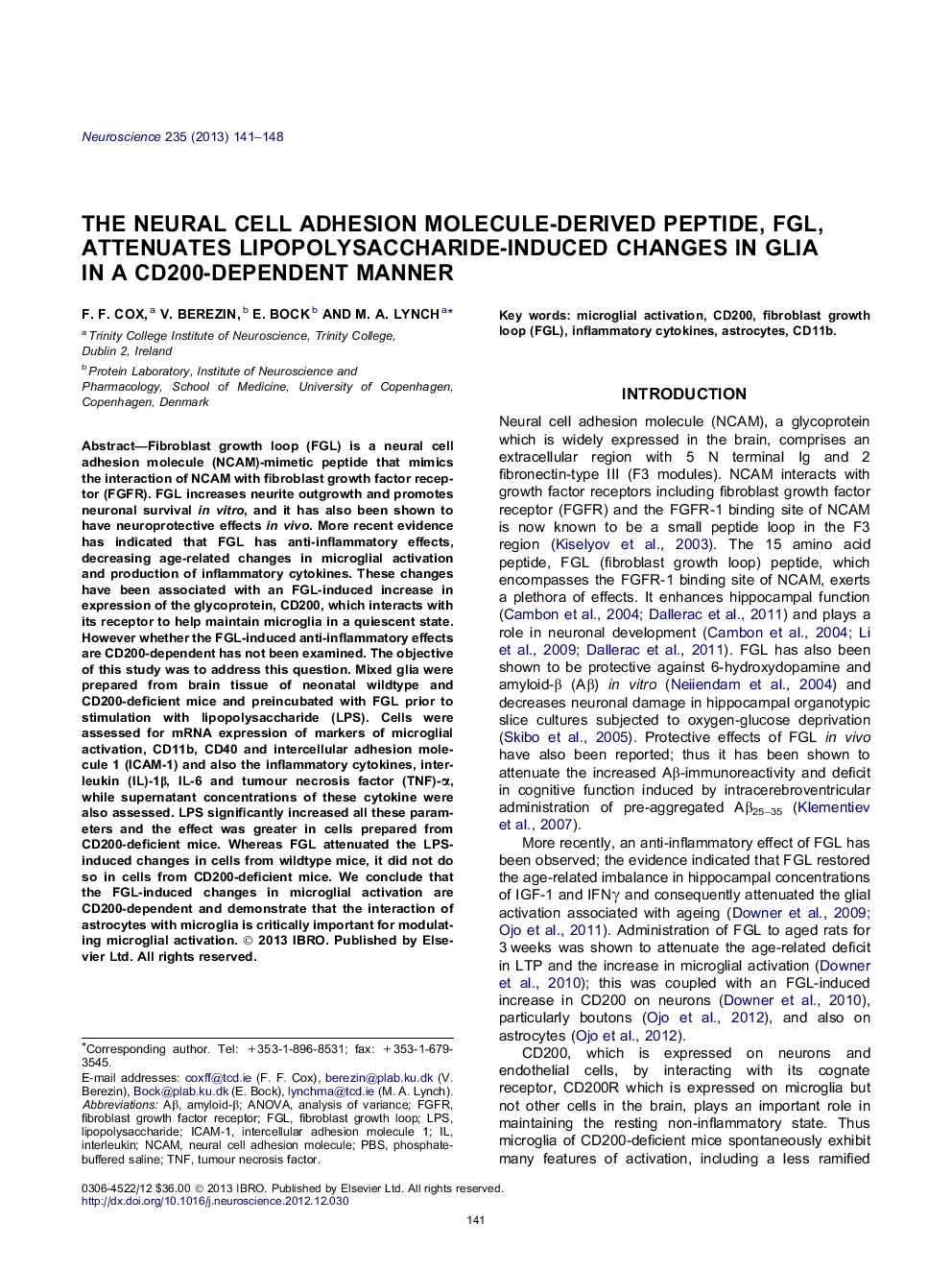| Article ID | Journal | Published Year | Pages | File Type |
|---|---|---|---|---|
| 4338037 | Neuroscience | 2013 | 8 Pages |
Fibroblast growth loop (FGL) is a neural cell adhesion molecule (NCAM)-mimetic peptide that mimics the interaction of NCAM with fibroblast growth factor receptor (FGFR). FGL increases neurite outgrowth and promotes neuronal survival in vitro, and it has also been shown to have neuroprotective effects in vivo. More recent evidence has indicated that FGL has anti-inflammatory effects, decreasing age-related changes in microglial activation and production of inflammatory cytokines. These changes have been associated with an FGL-induced increase in expression of the glycoprotein, CD200, which interacts with its receptor to help maintain microglia in a quiescent state. However whether the FGL-induced anti-inflammatory effects are CD200-dependent has not been examined. The objective of this study was to address this question. Mixed glia were prepared from brain tissue of neonatal wildtype and CD200-deficient mice and preincubated with FGL prior to stimulation with lipopolysaccharide (LPS). Cells were assessed for mRNA expression of markers of microglial activation, CD11b, CD40 and intercellular adhesion molecule 1 (ICAM-1) and also the inflammatory cytokines, interleukin (IL)-1β, IL-6 and tumour necrosis factor (TNF)-α, while supernatant concentrations of these cytokine were also assessed. LPS significantly increased all these parameters and the effect was greater in cells prepared from CD200-deficient mice. Whereas FGL attenuated the LPS-induced changes in cells from wildtype mice, it did not do so in cells from CD200-deficient mice. We conclude that the FGL-induced changes in microglial activation are CD200-dependent and demonstrate that the interaction of astrocytes with microglia is critically important for modulating microglial activation.
► LPS increased microglial activation and production of inflammatory cytokines in cultured cells. ► The LPS-induced changes were greater in cells from CD200−/−, compared with wildtype, mice. ► FGL attenuated the LPS-induced changes in cells from wildtype, but not CD200−/−, mice. ► Astrocytes, which express CD200, play an important role in modulating microglial activation.
